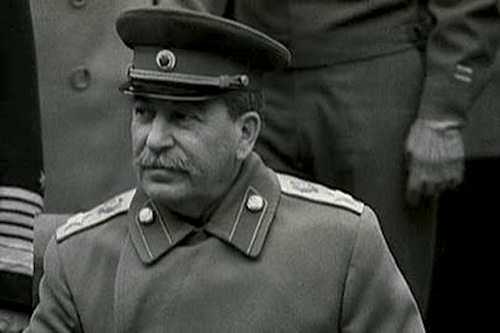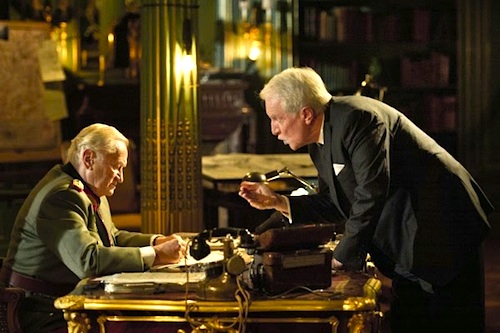
By Joe Bendel. The fact that assassinated independent journalist Anna Politkovskaya supported the work of the Russian research and archival non-profit Memorial pretty much tells you all you need to know about its mission and place in the Putin-era body politic. Dedicated to exposing Stalin’s crimes against humanity and preserving the oral history of his victims, Memorial endures constant harassment and demagoguery. The dictator’s pervasive legacy and the drive to whitewash its enormity are examined in Thomas Johnson’s In the Wake of Stalin, which screens as part of the 2014 UN Association Film Festival in the Stanford area.
Through forced agricultural collectivization, willful acceptance of the resulting famines, a notorious series of purges and show trials, and periodic anti-Semitic campaigns, Stalin physically and spiritually devastated the Soviet people. Yet today, more and more Russians use loaded terms like “strong leader” and “iron willed” to describe Stalin.
In part, matters reached such a frightening and depressing state because there has never been a national reckoning of the Communist Party’s crimes. There is a government appointee officially charged with investigating Soviet human rights violations, but his lack of initiative is rather appalling, even by the standards of Soviet era bureaucrats. Memory stepped in to fill that void, but the reaction from Putin’s enforcers and loyalists has not been pretty.
While the title suggests more of a survey of Stalinist horrors, Johnson’s film, co-written with Marie Brunet-Debaines evolves into a documentary tribute to Memory, but they clearly deserve the ovation. The testimony they capture from Memory interview subjects is truly harrowing, while the thuggish graffiti and threats they document are simply ugly.

Nonetheless, Wake consistently draws a clear distinction between Stalin and Putin, readily conceding they are not moral equivalents (thus far). However, the dictum regarding those who forget the past deafeningly echoes throughout the film. Clearly, there are those who wish to render the past forgotten—and they presumably have their reasons.
Indeed, Wake is a level-headed analysis of Russia’s current ideological climate, enriched by its wider historical context. It is not alarmist, but it is alarming. Thoroughly researched and substantiated, it is a valuable work of cinematic reportage. Highly recommended, In the Wake of Stalin screens this Sunday (10/16) at Stanford University as part of session 10 of the 2014 UNAFF.
LFM GRADE: B+
Posted on October 16th, 2014 at 2:40pm.





